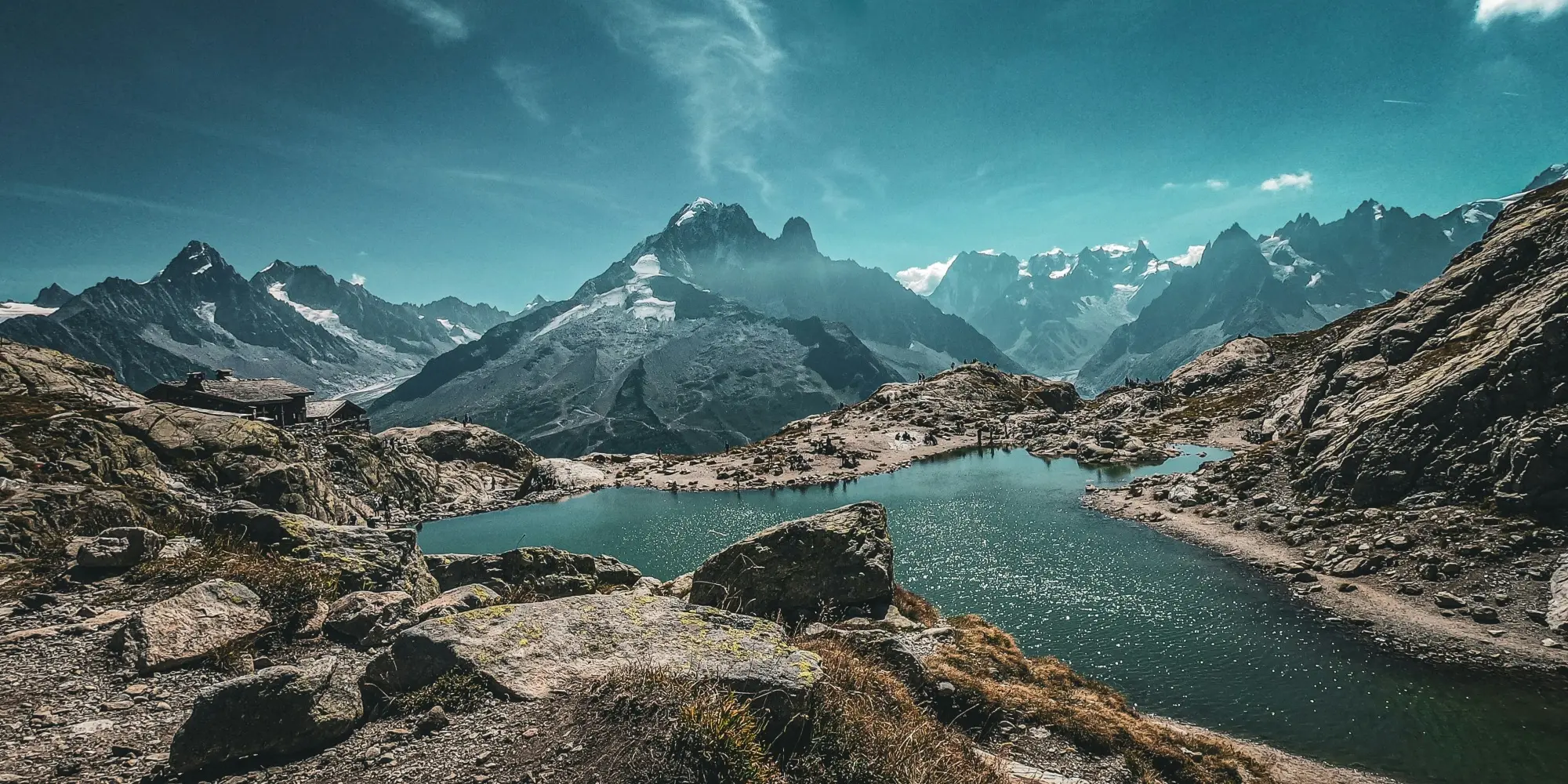Eco-tourism is quickly becoming a cornerstone of the travel industry. It attracts adventurous spirits while prioritising the preservation of natural ecosystems. This trend encourages travellers to explore beautiful destinations responsibly, ensuring that local environments are protected and biodiversity is maintained.

According to Statista, more than 80% of travellers worldwide believe sustainable tourism is essential and are open to adopting eco-friendly practices. This increasing awareness has helped the ecotourism industry reach an impressive global market size of $172.4 billion.
As people become more eco-conscious, they seek experiences that provide adventure and promote environmental responsibility and community engagement. This shift in mindset paves the way for understanding the underlying forces driving this change, leading us to explore why eco-tourism is gaining popularity.
Why Eco-Tourism Is Gaining Popularity
The rise of eco-tourism reflects a heartfelt shift in how travellers view their adventures; they’re no longer just looking for Instagram-worthy moments but also for experiences that resonate deeply with their values. Travelers seek more meaningful connections with local communities and ecosystems, craving adventures that thrill their senses and foster a sense of purpose and responsibility.
This newfound consciousness drives them to pursue eco-friendly accommodations. They’re looking for local guides and want to support sustainable practices, transforming their journeys into opportunities for environmental sustainability and conservation.
The Environmental Benefits of Eco-Tourism
The benefits of eco-tourism extend far beyond the thrill of adventure; they weave together environmental preservation, cultural richness, and economic vitality. One significant benefit of eco-tourism is its positive impact on preserving natural habitats and biodiversity.
Ecotourism encourages the protection of delicate ecosystems by promoting responsible travel practices. Such an approach ensures that endangered species can thrive amidst human activities. In places like the French Alps, eco-conscious initiatives not only highlight the region's stunning beauty but also foster conservation efforts aimed at safeguarding the local flora and fauna.
Travellers flock to the French Alps, motivated by the allure of its majestic mountains and picturesque villages, yet they often leave with much more than scenic photos. Visitors can engage with local guides to learn about traditional Alpine practices, partake in farm-to-table culinary experiences, and witness firsthand the efforts to preserve the pristine environment. These connections create a rich narrative, allowing tourists to appreciate the breathtaking landscapes and vibrant culture while supporting sustainable practices.
Moreover, eco-tourism brings significant economic benefits to local communities, creating jobs and bolstering small businesses. As travellers choose to support eco-friendly accommodations and regional artisans, they contribute to a cycle of sustainability that empowers families and strengthens communities. This symbiotic relationship between tourists and residents fosters a sense of camaraderie that enriches the adventure while reaffirming the importance of responsible travel.
Challenges Faced by Eco-Tourism
While eco-tourism presents numerous benefits, it also faces significant challenges that can undermine its intentions, including risks like greenwashing and exploiting natural resources for profit. Understanding these challenges is crucial for those who want to safeguard the integrity of eco-tourism and foster sustainable practices.
Here are a few ways in which the eco-tourism movement encounters hurdles:
- Greenwashing: Misleading marketing claims that exaggerate environmental benefits while failing to make significant sustainable changes.
- Resource exploitation: Overreliance on natural resources can lead to degradation and depletion, negating eco-tourism goals.
- Cultural disruption: Increased tourist traffic can strain local cultures and traditions, leading to commercialisation and loss of authenticity.
- Environmental impact: Even eco-friendly tourism can inadvertently contribute to pollution and habitat disturbance if not carefully managed.
- Economic inequality: Profit may disproportionately benefit investors rather than local communities, undermining the potential for empowerment.
- Seasonality: Many eco-tourism destinations suffer from fluctuating visitor numbers, complicating year-round economic sustainability.
- Regulatory challenges: Lack of oversight or effective policies can lead to unregulated development, harming ecosystems and local economies.
- COVID-19 aftereffects: The pandemic has reshaped travel behaviours, posing challenges to the recovery and sustainability of eco-tourism initiatives.
While eco-tourism holds tremendous potential for fostering environmental stewardship and supporting local communities, it also faces challenges such as over-tourism, habitat degradation, and cultural commodification. Addressing these issues is essential to ensure that eco-tourism remains a sustainable and enriching experience for both travellers and the destinations they explore.
Sustainable Travel Practices for Eco-Tourists
You can adopt sustainable travel practices by choosing to travel by train instead of plane, as this mode of transport can significantly lower carbon emissions. Additionally, selecting local, plant-based dining options can reduce food miles and support the regional economy, enhancing the sense of place during the journey.
Let's explore some practical, sustainable travel practices you can adopt to minimise your environmental footprint while maximising your adventure.

Green Accommodations in Eco-Tourism
Green lodgings are essential in the eco-tourism movement, allowing you to indulge in luxury while minimising your environmental impact. Nestled in enchanting regions like Chamonix-Mont-Blanc and Les Gets, these properties seamlessly blend opulence with sustainability. Picture waking up in a beautifully designed chalet that boasts energy-efficient systems and thoughtfully implemented waste management strategies, all while surrounded by breathtaking alpine landscapes.
It's the perfect mix of adventure and comfort — think spa treatments infused with local herbs, organic meals crafted from seasonal ingredients, and panoramic views that nurture both the soul and the planet. Opting for these accommodations allows you to nurture the Earth in style while enjoying a memorable and convenient getaway, all with a strong emphasis on quality and eco-consciousness.
Eco-Friendly Activities
Embarking on eco-adventures means enjoying activities like hiking the stunning trails of Méribel or observing wildlife in Alpe d'Huez, where nature’s beauty offers exhilarating experiences. For winter sports enthusiasts, skiing and snowboarding on the pristine slopes of the French Alps offer an adrenaline rush while embracing eco-friendly practices, such as using ski lifts powered by renewable energy.
Such activities resonate with the essence of green riders — adventurers who opt for sustainable skiing and transportation methods like mountain biking or electric scooters to explore the terrain. Whether navigating the serene pathways on foot or gliding through the air, every experience in the French Alps fosters a deeper connection to the natural world.
Choosing eco-friendly practices allows you to fully immerse yourself in the breathtaking beauty of the mountains while minimising your environmental impact. These joyful excursions foster deeper connections with nature and its diverse ecosystems, ensuring we preserve these pristine landscapes for future generations. It’s an adventure that nourishes the soul and leaves a positive mark on the planet.
Investing in Green Properties
Eco-tourism is reshaping the landscape of property development, guiding investors to rethink traditional models in favour of sustainable designs that harmonise with the environment. As travellers increasingly look for eco-friendly accommodations, properties that prioritise renewable energy, sustainable materials, and responsible practices attract eager guests and hold long-term value.
Imagine investing in a charming lodge that draws adventurers and stands as a testament to environmental stewardship — this is where the future lies. Aligning financial aspirations with a commitment to nature allows investors to cultivate a sense of fulfilment while still making a profitable investment. This approach transforms their ventures into wise investments and meaningful contributions to our planet's well-being.
Building a Sustainable Future in Travel
The growing trend in responsible travel is a powerful catalyst for environmental conservation, promoting practices that benefit nature and local communities.
Destinations like Courchevel, Châtel, and Val d'Isère are trailblazers in this movement, showcasing sustainable practices that harmonise adventure with ecological mindfulness. You can make a meaningful difference by supporting eco-friendly initiatives, from choosing green accommodations to participating in local conservation projects.
Businesses have a unique opportunity to lead by example, integrating sustainable practices into their operations and encouraging guests to make choices that honour the environment. Individuals and companies can cultivate a positive travel ethos that cherishes and protects our planet for future generations.
In embracing eco-tourism, we tackle exhilarating adventures and forge a deep connection with the world around us. By supporting sustainable practices and eco-friendly initiatives, each traveller becomes a guardian of our planet, ensuring its beauty and resources endure for generations. Together, we can redefine the travel experience, transforming our wanderlust into actions that honour nature, empower local communities, and celebrate our extraordinary planet.


